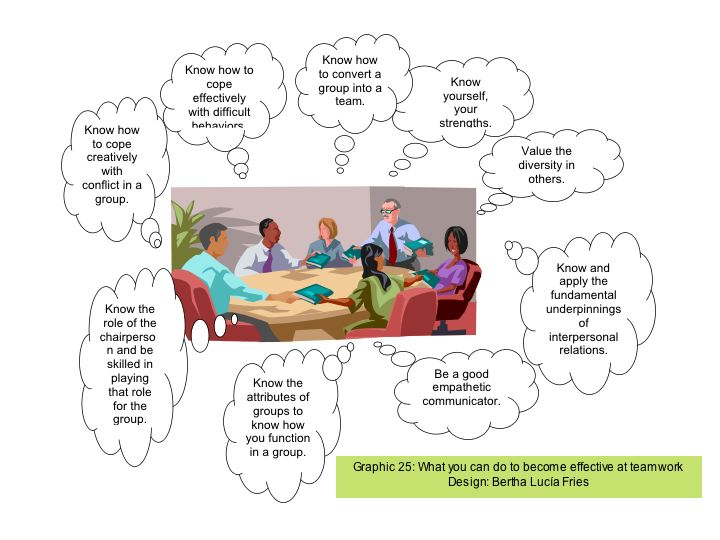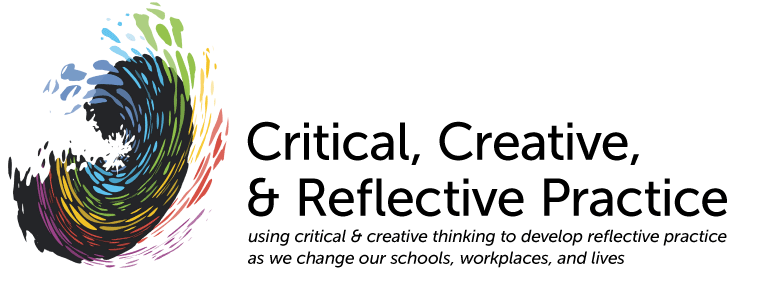What You Can do to Become Effective at Teamwork
(See Graphic 25)Source: Woods (1994)
1. Know yourself, your strengths, your weaknesses and your preferences and become comfortable with yourself.
- Become aware of your style
- Self-acceptance comes from self-awareness
- Cultivate the qualities you like in yourself
- Learn to enjoy being alone
- Develop your capacity for pleasure
- Be positive, smiling and avoid cynicism
- Believe in yourself
- Be willing to confront people when you disagree with them about something that matters to you
- Remember you are what you create
2. Value the diversity in others.
- As we learn more about our preferred ways of doing things, we learn to value the diversity in others. As we learn to take pride in our own approaches, we value more the richness that others bring to the group
3. Know and apply the fundamental underpinnings of interpersonal relations.
- Build trust and communicate empathetically
- We all have the right to choose, to have opinions, to be respected, to have needs, to have and express feelings, to make mistakes (and be forgiven) and to accept these rights in others. These are the foundation of all interpersonal behavior. These are crucial to understanding how to listen and respond, how to manage stress, how to cope effectively with anger and how to deal with those difficult behaviors we encounter in life
- Nine guidelines for personal conduct:
o Treat others the way you would like to be treated.
o Look for the good in others; expect the best.
o If you don’t have anything nice to say, don’t say anything at all.
o Be loyal first to yourself and then to others.
o Maintain a sense of humor; keep things in perspective.
o Cooperation must be earned not demanded.
o People don’t care how much you know, just how much you care about them
o Show empathy to indicate that you have listened and understood others. Focus your response on being flexible so that you show willingness to listen and try to understand another’s views.
4. Be a good empathetic communicator.
- Listen and respond in such a way that you express yourself and show that you understand the needs, feelings and opinions of others.
5. Know the attributes of groups to know how you function in a group.
6. Know the role of the chairperson and be skilled in playing that role for the group.
- Every group must have a chairperson. The chairperson is not the leader, she is the facilitator. The chairperson anticipates the needs of the group meeting; prepares an agenda and then facilitates the group process.
7. Know how to cope creatively with conflict in a group.
- When groups mature and trust develops, differences in ideas, approaches, styles and opinions will become apparent. To the healthy group, this is positive and will help create better decisions!
- Not all conflicts are bad and, in the right group, they can offer an opportunity to understand where another person is coming from.
- There is not just one way to deal with conflict… there are 5. They are: accommodate, withdraw, compromise, collaborate, force. Become skilled at using all five.
8. Know how to cope effectively with difficult behaviors.
- Focus on the behavior, not the personality. Be problem oriented not personality oriented.
- People develop difficult behaviors because they help them achieve their goals. You cannot change the person but you can change your response to their behavior.
9. Know how to convert a group into a team.
- As teams evolve and are given more responsibility and rights, team and member accountability increases. Freedom and accountability go hand in hand.

(Original page by Mary Frangie)
